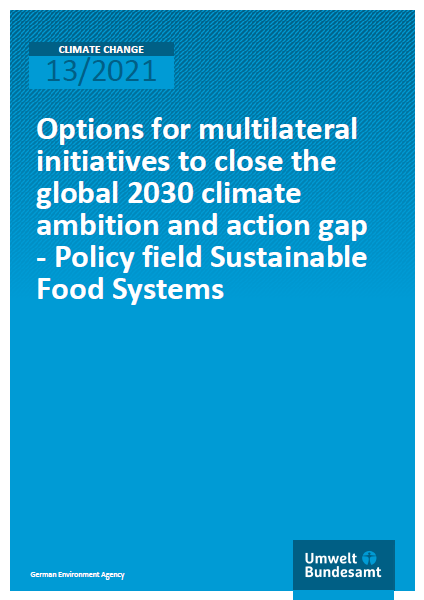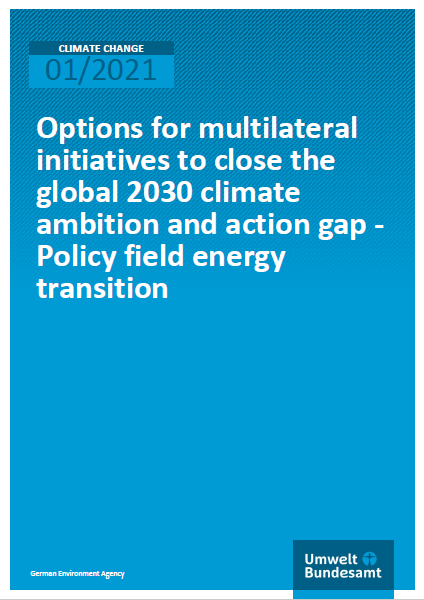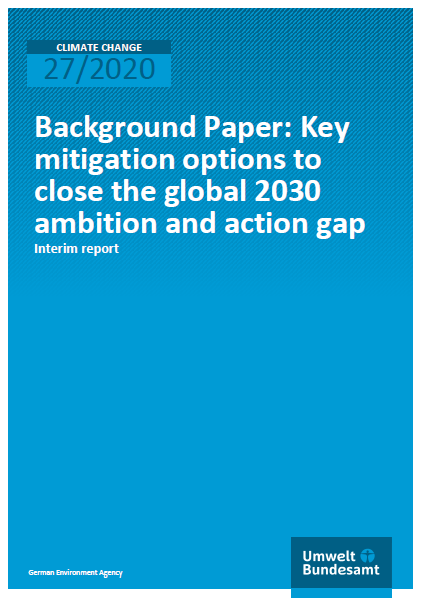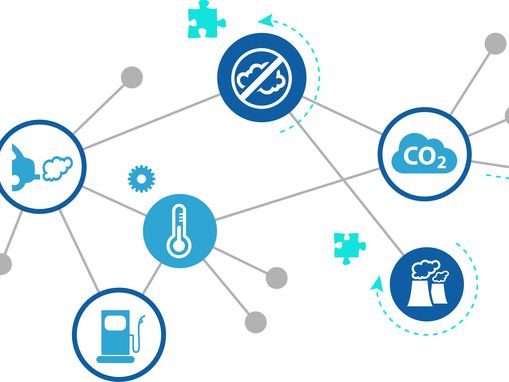Options for Multilateral Initiatives to Close the Global 2030 Climate Ambition and Action Gap
Policy Field Sustainable Food Systems
- Publication
- Citation
Wunder, Stephanie (et al.) 2021: Options for Multilateral Initiatives to Close the Global 2030 Climate Ambition and Action Gap - Policy Field Sustainable Food Systems. Dessau-Roßlau: Umweltbundesamt.
Published in April 2021, this policy brief identifies four options for increased multilateral cooperation that support an international shift towards sustainable food systems and help to increase the global 2030 climate ambition at the same time. The identified initiatives focus on activities that reduce food loss and waste and support plant based diets, following a 'food systems approach.'
Both food waste reduction as well as a diet shift offer the potential to unfold many other positive sustainability impacts, including health and resource efficiency. This paper discusses options for how a shift towards sustainable food systems, including food waste reduction and a dietary shift, can be enhanced through multilateral cooperation in different political processes, be it the UN Food System Summit in 2021, discussions within G20/G7, the UNFCCC COP26 and others.
The four options are
- the setup of an international institution that assists in building appropriate national frameworks with a food system approach (called "Biting back better"),
- an initiative to strengthen a food system approach in international climate policy (called "ClimEat-Change"),
- a multilateral collaboration and exchange mechanism on how to implement and locally adapt the Planetary Health Diet requirements into National Dietary Guidelines (called "Nutrition Guidelines for Future") as well as
- an initiative to set up an international food loss and waste accreditation scheme that helps to measure and manage food loss and waste all along the value chain (called "Ensure 12.3").
Moreover, the policy brief presents an overview of existing partnerships, alliances and networks at the international level that illustrates on which existing international activities one can already build on.
The policy brief "Options for multilateral initiatives to close the global 2030 climate ambition and action gap - Policy field Sustainable Food Systems was developed within the project "Accelerating global climate action before 2030" supported by the German Federal Environment Agency








